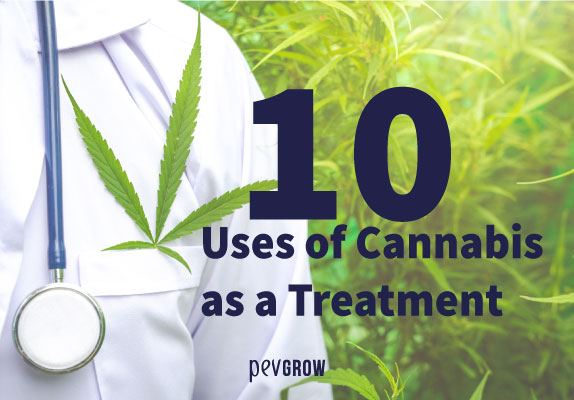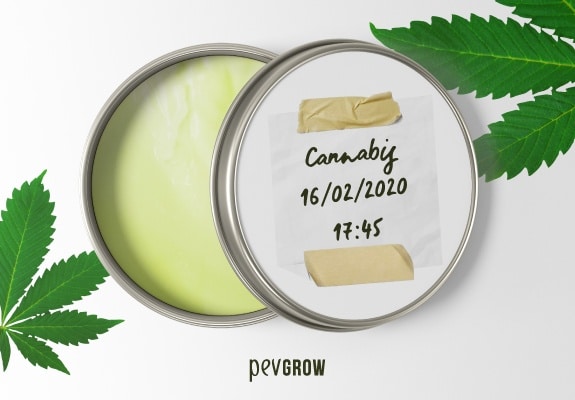

In constant struggle for the regulation of cannabis, mainly in the medicinal field.
04-12-2020 10:00:43 - Updated: 4 December, 2020
Cannabis is often related to its recreational use and is present in the collective imagination as a drug for its relaxing or recreational effects, which have been enjoyed since this plant is used by humans. Even so, the use of medicinal cannabis also has a long tradition that little by little is recovering in a gradual social acceptance that still has some difficulties.
The truth is that both hemp and cannabis have diverse medical uses that were very popular in the old medicine to prepare medicines. They have been useful to improve the adverse effects of some diseases and once it became very common to use cannabis as a treatment for multiple conditions. This continues to be investigated nowadays despite the fact that there is still a long way to go before its application is normalized.
🧐 When does the use of medical cannabis apply ?
Although in some cases its application is still experimental, many others are already contrasted since the oldest societies used the plant in their ointments. Below we show you the 10 medicinal uses of cannabis:
-1- Pain that remains with medication
There are cases in which the patients present a series of pains that cannot be alleviated with medicines and others in which the patient ends up presenting a long-term tolerance to drugs, which makes them ineffective. This can be common in people with muscular ailments or conditions that attack the nervous system, as is the case with multiple sclerosis or fibromyalgia.
When this happens, doctors can prescribe cannabis treatments among its ingredients exploiting the relaxing effects of the plant. This way it is possible to alleviate the central nervous system and to improve the patient’s quality of life.
Pain is often associated with other complications, such as fatigue, spasticity, insomnia, or anxiety. Hence, it is very important to properly know each patient before recommending one type of cannabis or another. It is also important to find out whether the attacks are intermittent or continuous and how intense they are in order to recommend the ideal treatment and dosage. And of course the possible side effects have to be taken into account so that cannabis does not become another problem like the opioid crisis.
-2- HIV and cancer patients
When cancer and HIV are at a very advanced stage, patients experience pain, discomfort, vomiting or a significant loss of appetite, making it difficult to effectively apply treatments to heal the disease. In these cases, the medical use of cannabis can be used as a treatment for pain and it is even applied in different formats. In the terminal states of the disease, it is used to palliate the pain and often it is combined with the application of morphine, where the effect is enhanced with this mixture.
Cannabis has not only been shown to be very effective in combating loss of appetite, but is also often very useful for cancer patients to improve their mood, to recover their motivation and desire to fight, or to make the situation easier to accept.
-3- Remedy for vomiting and lack of appetite
Some health problems lead to vomiting, nausea or loss of appetite as either a side effect or the main effect of the disease. In order to fight this type of disorders it is common to use cannabis like a treatment, since it can help to improve the appearance of nauseas and to increase appetite in a non-aggressive way for the patient.
In the United States, there are two oral cannabis-based medicines that are prescribed to treat nausea and vomiting in patients receiving chemotherapy on whom standard antiemetics are ineffective. Nabiximols is also a cannabis-based, but inhaled medicine and has been successfully tested in Spain for the treatment of nausea and vomiting in patients undergoing chemotherapy. In clinical studies, both dronabinol and nabilone have been found to work the same or better than other drugs in relieving nausea and vomiting
-4- Reduction of migraines and headaches
Migraines can be really incapacitating for the person who suffers them, since he/she will feel annoyed at the slightest noise, light and even feel terrible pricks in his/her head. Sometimes the pain can lead to vomiting or a feeling of disorientation. Currently, the use of medical cannabis to combat these aggressive symptoms is being investigated and it is even believed that it may be useful as a preventive treatment to considerably reduce the appearance of migraines.
There is high hope for this, as recent studies by Carrie Cuttler (Assistant Professor of Psychology at Washington State University) and published by the Journal of Pain show how inhaled cannabis reduces headaches by 47% and migraines by 49.6 %. The research was conducted through the Strainprint app, which tracks the symptoms of thousands of patients before and after their disease was treated with marijuana.
The results of these studies also seem to suggest that excessive consumption of cannabis does not cause headaches, as other medicines taken for this purpose do. Amazingly, it has also been found that cannabis strains with a higher THC or CBD content are no more effective than others. This means that terpenes, flavonoids, terpenoids, lipids and other compounds in cannabis play a greater role in effectiveness than previously thought.
-5- Prevention of Alzheimer’s
The effect of cannabis on the prevention of Alzheimer’s is also in an experimental phase. This disease is produced by the death of some neurons and one of the components of cannabis is investigated as a solution to stop this from happening.
This condition is caused by excessive accumulation of a protein called amyloid beta in brain tissue. This aggregation gradually forms plaques and neurofibrillary tangles and ends up causing neuroinflammation and toxicity, which is responsible for the premature death of neurons.
CBD is known to be very effective as an anti-inflammatory agent, so it could slow down or delay the effects of beta-amyloid aggregations. However, cannabinoids also have antioxidant effects and help to increase appetite, relieve anxiety and improve mood, which is very important for Alzheimer’s patients, since these are usually related symptoms.
-6- ADHD and emotional problems
Nowadays, considerable progress has been made in the early diagnosis of ADHD (Attention Deficit Hyperactivity Disorder) and many children are receiving treatment to improve their concentration and mood. These treatments can be quite aggressive and generate some changes in the personality of the patients. Studies are now proving that the use of cannabis as a treatment can be effective and reduce side effects. Although the medical community has not yet released any medicine with these ingredients, research is still ongoing.
The few studies that have been done on this to date are encouraging, but research still needs to be done on how cannabis can help treat ADHD symptoms. A study conducted in 2017 by King College London with 30 adults treated with Sativex showed promising results, including significant improvements in cognitive decline. However, there was one case with serious side effects, so it still needs to be researched
-7- To combat nervous diseases
The diseases that attack the nervous system are among the most complicated when it comes to finding an appropriate and effective treatment that does not have overwhelming side effects for the patient. In some of them like Parkinson, it has been verified that the use of medical cannabis can work and improve mobility control in these patients. This is another one of the applications that is in the research phase.
More than 130 years ago, the use of cannabis to treat Parkinson’s disease was mentioned in William Richard Gowers’ 1888 Handbook of Nervous System Disorders. Cannabinoids play a very important role here, as they have antioxidant and neuroprotective effects, which can be very useful for combating Parkinson’s and other diseases such as multiple sclerosis, ALS or Alzheimer’s
-8- Treatment for insomnia
Insomnia is increasingly common in our society and its appearance can lead to a significant lack of concentration throughout the day, changes in mood, apathy and persistent fatigue. The use of cannabis can become positive to compensate for the rhythms of sleep and make these patients more easily at bedtime.
The endocannabinoid system plays an important role in the sleep cycle and is involved in sleep regulation and REM sleep. A study with 166 patients, dividing them into two groups, people with sleep problems and without, showed that both groups fell asleep faster.
Hypnotics or benzodiazepines are nowadays recommended for insomnia. These are medicines with a high risk of addiction and serious side effects in many cases. That’s why cannabis-based medicines would be very useful, as they are effective and safer.
-9- Anti-spastic treatment
In some patients there is a muscle tension effect that prevents movement or even speech, this is known as spasticity and can be very disabling for the sufferer. The use of medical cannabis has given very good results in this type of complications and has reduced the impact of these attacks in patients with diseases such as epilepsy.
A few years ago, the journal Biomed Central Neurology published a review of studies conducted by the Los Angeles-based Global Neuroscience Initiative Foundation (California). It was found that 5 out of 6 trials with THC and CBD reduced spasticity and improved mobility in multiple sclerosis patients.
-10- For depression and anxiety
Both depression and anxiety are considered the two great diseases of our century and it is increasingly common to find cases derived from work stress or lifestyle. Cannabis can help to calm symptoms in both cases and to improve the quality of sleep, which is one of the consequences of these disorders.
However, this is a controversial issue. Some studies show that some cannabinoids are effective against depression, others suggest that marijuana can cause depression, and still others point out that it is only helpful in the short term and that the remedy is afterwards worse than the disease itself.
According to an article by Kurt Blass published on cannabis-med.org, the results of animal studies, individual reports on the experiences of cannabis users, and observations from clinical trials using cannabinoids in serious illnesses suggest that cannabinoid receptor agonists have potential antidepressant effects. From 2003 to 2006, 75 patients with depression, stress and burnout syndrome were successfully treated by general practitioners with dronabinol, an active component in cannabis, alone or together with other antidepressants.
🎯 Infographics on the 10 medical uses of Cannabis

⚠️ Conclusion
Medicinal use of cannabis is very little extended but it has a long tradition. These plants have been used to palliate the pains since ancient medicine and today there are new investigations on the matter.🔬
The application of cannabis as a treatment can be very effective in diseases that attack the nervous system, improving the mobility of the patients or reducing significantly the muscular pains that other drugs do not manage to palliate.
It is also positive in other types of disorders such as insomnia, 😴 anxiety or depression, since cannabis has a relaxing effect and improves patients’ sleep quality.
Source:
- https://pubmed.ncbi.nlm.nih.gov/24742657/
- https://pubmed.ncbi.nlm.nih.gov/25974259/
- https://pubmed.ncbi.nlm.nih.gov/17828287/
- https://www.cannabis-med.org/data/pdf/es_2008_02_2.pdf
- https://www.infosalus.com/actualidad/noticia-cannabis-alivia-espasticidad-esclerosis-multiple-20091204105840.html
- https://www.kalapa-clinic.com/insomnio-cannabis-terapeutica/
- https://www.fundacion-canna.es/cannabis-y-enfermedad-de-parkinson
- https://www.kalapa-clinic.com/tdah-tratamiento-cannabinoides/
- https://www.fundacion-canna.es/enfermedad-de-alzheimer-y-cannabinoides
- https://www.infosalus.com/salud-investigacion/noticia-cannabis-contra-dolor-cabeza-migrana-estudio-concluye-reduce-mitad-20191202163855.html
- https://www.cancer.gov/espanol/cancer/tratamiento/mca/paciente/cannabis-pdq
- https://www.tuvidasindolor.es/el-cannabis-medicinal-en-el-manejo-del-dolor-cronico/






This helps alot!